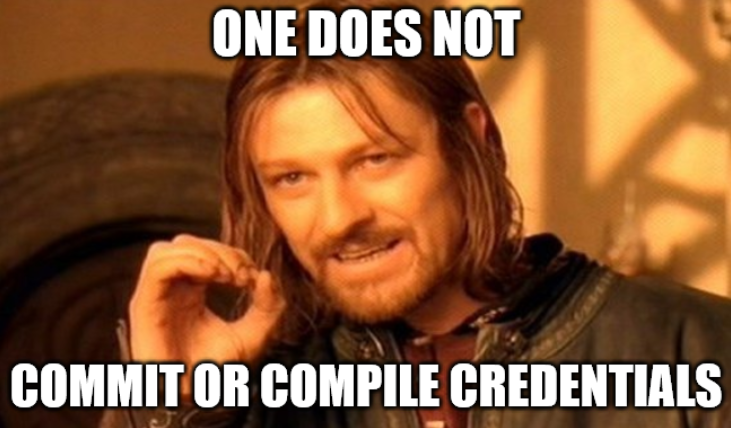this post was submitted on 12 Jul 2024
366 points (97.4% liked)
Programmer Humor
20621 readers
1272 users here now
Welcome to Programmer Humor!
This is a place where you can post jokes, memes, humor, etc. related to programming!
For sharing awful code theres also Programming Horror.
Rules
- Keep content in english
- No advertisements
- Posts must be related to programming or programmer topics
founded 2 years ago
MODERATORS
you are viewing a single comment's thread
view the rest of the comments
view the rest of the comments

At my workplace, we use the string
@nocommitto designate code that shouldn't be checked in. Usually in a comment:but it can be anywhere in the file.
There's a lint rule that looks for
@nocommitin all modified files. It shows a lint error in dev and in our code review / build system, and commits that contain@nocommitanywhere are completely blocked from being merged.(the code in the lint rule does something like
"@no"+"commit"to avoid triggering itself)Neat idea. This could be refined by adding a git hook that runs (rip)grep on the entire codebase and fails if anything is found upon commit may accomplish a similar result and stop the code from being committed entirely. Requires a bit more setup work on de developers end, though.
Would a git hook block you from committing it locally, or would it just run on the server side?
I'm not sure how our one at work is implemented, but we can actually commit
@nocommitfiles in our local repo, and push them into the code review system. We just can't merge any changes that contain it.It's used for common workflows like creating new database entities. During development, the ORM system creates a dev database on a test DB cluster and automatically points the code for the new table to it, with a
@nocommitcomment above it. When the code is approved, the new schema is pushed to prod and the code is updated to point to the real DB.Also, the codebase is way too large for something like ripgrep to search the whole codebase in a reasonable time, which is why it only searches the commit diffs themselves.
There are many git hooks. One of them checks each commit, but there's another that triggers on merges.